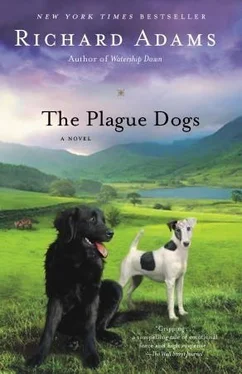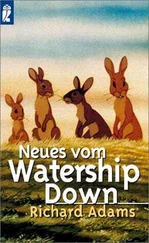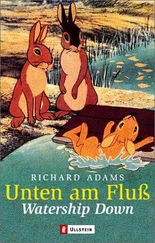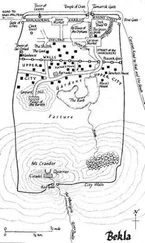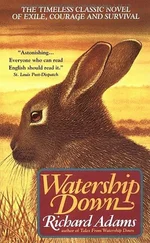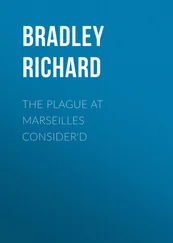Richard Adams - The Plague Dogs
Здесь есть возможность читать онлайн «Richard Adams - The Plague Dogs» весь текст электронной книги совершенно бесплатно (целиком полную версию без сокращений). В некоторых случаях можно слушать аудио, скачать через торрент в формате fb2 и присутствует краткое содержание. Город: New York, Год выпуска: 2007, ISBN: 2007, Издательство: Ballantine Books, Жанр: Природа и животные, Фэнтези, на английском языке. Описание произведения, (предисловие) а так же отзывы посетителей доступны на портале библиотеки ЛибКат.
- Название:The Plague Dogs
- Автор:
- Издательство:Ballantine Books
- Жанр:
- Год:2007
- Город:New York
- ISBN:978-0-345-49402-3
- Рейтинг книги:3 / 5. Голосов: 1
-
Избранное:Добавить в избранное
- Отзывы:
-
Ваша оценка:
- 60
- 1
- 2
- 3
- 4
- 5
The Plague Dogs: краткое содержание, описание и аннотация
Предлагаем к чтению аннотацию, описание, краткое содержание или предисловие (зависит от того, что написал сам автор книги «The Plague Dogs»). Если вы не нашли необходимую информацию о книге — напишите в комментариях, мы постараемся отыскать её.
, Richard Adams creates a lyrical and engrossing tale, a remarkable journey into the hearts and minds of two canine heroes, Snitter and Rowf, fugitives from the horrors of an animal research center who escape into the isolation—and terror—of the wilderness.
The Plague Dogs — читать онлайн бесплатно полную книгу (весь текст) целиком
Ниже представлен текст книги, разбитый по страницам. Система сохранения места последней прочитанной страницы, позволяет с удобством читать онлайн бесплатно книгу «The Plague Dogs», без необходимости каждый раз заново искать на чём Вы остановились. Поставьте закладку, и сможете в любой момент перейти на страницу, на которой закончили чтение.
Интервал:
Закладка:
“Leave it spilt, old Rowf! Let it trickle away! It’s made the floor sharp and the blood will run out of your nose. Come and push at the next door. It’s too much for me.”
They thrust their way hesitantly into the air-freight testing centre, where various methods were being examined of packing and transporting live animals by air. This work had been commissioned jointly by several airline companies, largely in order that they could reply that they had done so when faced with criticism of the deaths of various animals (such as small monkeys, lorises and aye-ayes, captured and bound not for the Carolina plantations but for zoos) which, having begun by being created, had ended by being crated, and succumbing to over-crowding, fear, thirst, neglect or to all four of these together. It was not, of course, difficult to design humane and efficient travelling crates for animals provided that cost was no object and that one could count upon a reasonable measure of responsible human care during the journey. To do the thing cheaply, however, and counting upon the prevalence of ignorance, indifference and neglect, called not only for ingenuity but also for expert knowledge of what various animals could be relied upon to endure. A principal factor was the fear and strain brought about by engine noise, sudden dropping or striking of crates, proximity of humans and alarming smells such as combustion engine exhaust, tobacco smoke and human sweat; and to these, accordingly, the control groups of animals were regularly exposed for longer or shorter periods, the results being carefully noted by Dr. Boycott, who had, in as short a time as three months, made the remarkable discovery that over-crowding, rough handling and prolonged thirst were beyond doubt the major contributors to higher-than-average death rates occurring among small mammals transported by air.
They wandered up and down the lines of hutches in the rabbitry, where experiments were being conducted to try to develop a food, similar to rat poison, which rabbits immune to myxomatosis would be eager to eat, with fatal results. Again, cost had proved a difficulty. A palatable and caustic poison, which burned through the intestines in twenty-four hours, had been tested successfully, but unfortunately its mass-production was not practicable at anything like an economic figure. A second poison, harmless to humans and cheap enough to produce, had been demonstrated by Dr. Boycott on television. On that occasion he had injected first a colleague and then a rabbit, the latter successfully dying in convulsions in less than two minutes under the cameras and the interested eyes of thousands of viewers. This poison, however, Dr. Boycott had so far not succeeded in making reasonably palatable, so that to date, injection remained the only means of administration. Of the possibilities of a certain sterility drug, however, he was more hopeful, and this was now being administered, in various forms and strengths, to both bucks and does. Rowf, having made several attempts to break into one of the hutches by leaping at the wire, and been requested by the rabbit inside to be so good as to let him die in peace, rejoined Snitter in his search for some way out other than the swing doors. They found none, and down to the next circle they went.
They searched the cat block, where cats were kept permanently in hoods covering their eyes and ears (in order to discover the effect upon cats of being kept permanently in hoods covering their eyes and ears). Here there was little noise or movement. Rowf, however, became fascinated by a single voice which kept repeating, “Oh dear, oh dear oh dear,” in a tone expressive rather of worry than of actual suffering, and spent some time trying to track it to its source before Snitter, who had again failed to find any way out of the block, could persuade him onward.
They made their way through the aquarium block, where octopi, with or without the benefit of brain surgery, received electric shocks when they approached offered food (the purpose being to examine their capacity for remembering previous shocks and therefore not responding to stimuli or inducements that would result in their receiving another). The electric plates were switched off, the tanks dark and their occupants somnolent or at least torpid; but nevertheless the low, watery sounds, the lappings and gurglings filling the room, drove Rowf almost hysterical, so that it was he who pushed on to the next pair of doors while Snitter was still searching in vain for a negotiable open window.
They came to a halt at last in the guinea-pig house, where all manner of guinea-pigs—ginger, black, white, black-and-white, ginger-and-black, long-haired, short-haired, tragical-pastoral, tragical-comical-historical-pastoral—were kept in reserve for the needs of the station. A number had had one or more of their legs amputated—the interesting thing being that they possessed no power of adaptation, but continued to attempt to behave as though they had four legs. Here Snitter, having searched the entire room, at last stopped in the furthest corner, his nostrils pressed to the crack under the door. This was no swing door, but a heavier affair altogether, a door of the normal kind, painted green and shut as fast as the Arabian trees.
“Wet mud and rain,” said Snitter. “Gutters and leaves! Smell.”
Rowf put down his nose. Both could smell a steady rain falling in the darkness outside. Rowf pushed at the unyielding door.
“No good,” said Snitter. “Postman’s door—paper boy’s door. Oh, never mind,” he added, as Rowf remained silent and uncomprehending. “We’ve eaten down to the plate, that’s all.”
“No getting out? Can’t we fight the postman?”
“Cats up a tree. Climb until the top branches bend. Then what? Hang yourself up on a cloud while you’re thinking. Hang me up on another.” As though to reassure himself, Snitter lifted his leg against the door, peed a moment and then sat back on his haunches, shivering in the damp draught and wisps of cloud-wrack blown in across the sill. “It’s cold. My feet are cold.”
“Burn,” said Rowf suddenly.
“What?”
“Burn, over there. Smell of ashes. It’ll be warmer. Come on.”
There was indeed a perceptible source of heat—not much, but some—coming from the opposite side of the block, beyond the central mass of guinea-pig hutches piled in tiers. Turning his head in the direction towards which Rowf was looking, Snitter could not only smell the ashes but see, in the dim light, minute particles, dust and motes, swirling upwards in an air current that must be warmer than the rest of the room. Following Rowf round the hutches, he found him already sniffing at a square door of iron set in a frame of brickwork and projecting from the wall a little above the level of his head. It was ajar. Peering upwards, he could glimpse, within, the roof or upper side of a kind of metal cavern, which must be deep, for not only was a warm draught coming up it and a light drift of powdery ash, but also minute sounds, tinklings and crepitations, magnified as they echoed against the iron sides of the shaft.
“What is it?” asked Rowf, bristling as though for a fight.
“No animal; so put your teeth down. Swing thing—door of some kind. Get it a bit wider open.”
Rowf made as if to push at it and Snitter quickly stopped him.
“No, no, you’ll shut it that way. You have to nose them open, or else use your paws. Let me show you.”
He stood up and rested his front paws on the projecting brickwork, thrust his muzzle into the crack of the opening and jerked his head sideways, levering the square of iron wide on its hinges. At once he backed nervously away, bristling as Rowf had done. The two dogs crouched together under the lowest tier of hutches facing the iron door.
“What is it?” repeated Rowf. “Something’s been burning, some sort of death—bones—hair—”
Читать дальшеИнтервал:
Закладка:
Похожие книги на «The Plague Dogs»
Представляем Вашему вниманию похожие книги на «The Plague Dogs» списком для выбора. Мы отобрали схожую по названию и смыслу литературу в надежде предоставить читателям больше вариантов отыскать новые, интересные, ещё непрочитанные произведения.
Обсуждение, отзывы о книге «The Plague Dogs» и просто собственные мнения читателей. Оставьте ваши комментарии, напишите, что Вы думаете о произведении, его смысле или главных героях. Укажите что конкретно понравилось, а что нет, и почему Вы так считаете.
